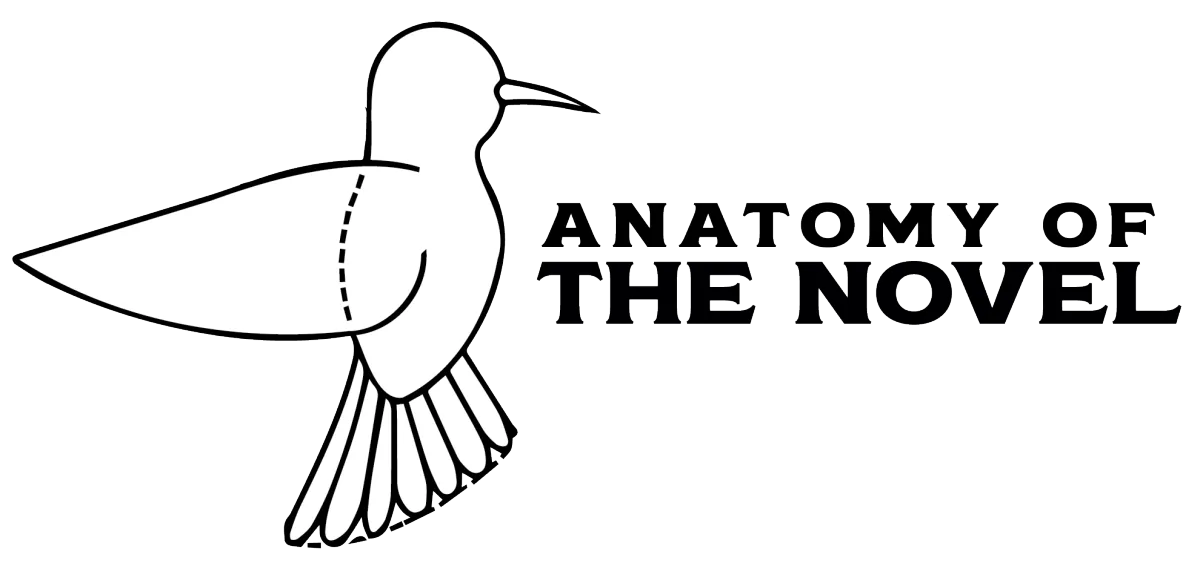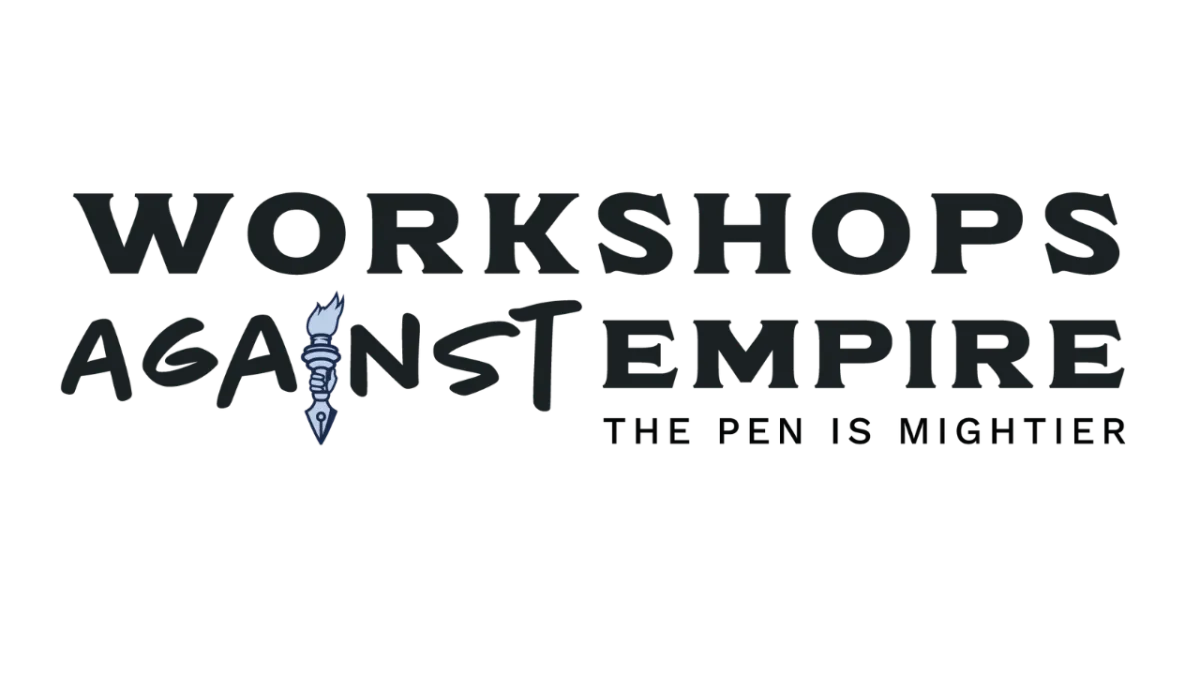
You could spend $40K on an MFA—and hundreds more on books on craft—and still be in the dark with your novel.
Or you could complete this course and nail it.
WHAT WE DO
Tell your story.
Change the world.
Workshops Against Empire is the ONLY program that combines a complete framework for writing a publishable novel with a focus on the social impact of your story.
That’s right. An alternative MFA in Writing program with social justice at its core.
WHAT WE DO
Tell your story.
Change the world.
Workshops Against Empire is the ONLY program that combines a complete framework for writing a publishable novel with a focus on the social impact of your story.
That’s right.
An alternative MFA in Writing program with social justice at its core.

The first foundational course of the Workshops Against Empire alternative MFA program
—now available in a self-paced format for just $97!
It’s a dirty little secret in the writing world: you can rack up $40K+ on an MFA, and/or read 40+ books on craft, and still have no idea how to write a publishable novel.
If you’re tired of wondering what you’re doing—and, frankly, tired of the BS—pull up a chair, crack open your laptop, and prepare yourself for a serious download.
In just four sections, you’ll learn the fundamental principles of publishable fiction, regardless of genre, and gain the tools to recognize when your novel meets the standards of the marketplace. Period.
Covered in This Course
Section One: Character
Character is the muscular system of the novel—the part of the story that defines its shape, sets it in motion, and, ultimately, makes it feel real.
Topics covered in section one of this course include:
Why character arc is THE key to connecting with your reader and making them care about what happens in the story
Your protagonist’s backstory and internal issue
Problems, obstacles, and changes
Climax—the moment of truth
The “inside game,” and why it’s critical to creating an emotional experience for your reader
Best practices for POV
Section Two: Plot
Plot is the skeletal structure of your novel, and it’s not just a series of events—it’s a series of events that connect via the articulation of cause and effect, giving the novel a solid, workable structure.
Topics covered in section two of this course include:
Ground situation and exposition
Plot points and reversals
Tension and stakes
Plot vs. subplot
The neuroscience of cause and effect, and why it matters
Best practices for narrative drive
Section Three: Goals and Motivations
Your characters’ goals and motivations are the nervous system of your novel, the part that connects plot to character. (It’s also responsible for sending those key signals to the reader that will allow them to follow the story.)
Topics covered in section three of this course include:
Motivation and stakes
Conflict, challenge, and pacing
Action and reaction
Lower-order goals vs. higher-order goals
The neuroscience of desire—how understanding your character’s goals and motivations is key to your reader’s understanding of the story
Section Four: Bringing Your Novel to Life
In the final week of this program, we'll bring these three critical systems of your novel's anatomy together into a single document, an outline that will bring it to life—whether you're settling down to write your first draft or headed into a developmental revision.
In this final section of the program, we'll cover:
How to create a fundamentally sound overall blueprint for your novel, regardless of what comes most naturally to you as a writer
Choosing the right plot for your character
Choosing the right character for your plot
Genre considerations
Multiple protagonists/POVs
Spontaneity vs. structure
Frequently asked Questions
Who is this course for?
This course was designed for novelists and aspiring novelists with a work-in-progress that is still in the developmental stage (meaning, you're still working on the story, not just tinkering with the prose).
Are you a pantser?
The framework I share in this course offers ample room for improvisation and discovery—and it will save you from spending years of your life on a manuscript that's never going to sell.
Are you a plotter?
The framework I share in this course will synthesize the various story structures you've studied into something a whole lot simpler, a whole lot clearer, and a whole lot more flexible than anything else you have seen before, gauranteed. (It will also keep you from making the sort of mistakes that result from going "by the book" with elements of structure that don't actually work for your novel.)
Are you planning or drafting a new novel?
This course will save you at least one complete revision—if not 2 or 3. In all likelihood, we're talking years of your life here (not to mention a whole lot of frustration and hair-pulling).
Are you headed into a developmental revision?
This course will help you see the forest for the trees, and focus on exactly what it will take to nail that story—stem to stern—in your next revision.
Who is this course NOT for?
Are you 100 percent sure of your story, and just want feedback on your execution?
This course isn't for you.
Are you looking for someone who will hand you industry connections and introduce you to all of their agent friends?
This course isn't for you.
Are you looking for someone to actually coach you in writing your novel?
This course isn't for you.
What level of experience is required?
This course is appropriate for writers at all levels.
Are you just starting out with long-form fiction?
This course will give you a solid grounding in the basics, and cut through the bewildering barrage of conflicting info you'll find on the internet (and, honestly, in most creative writing programs).
Are you a seasoned pro, with multiple published novels under your belt?
This course will cut through the BS in what you've been taught (if you have an MFA), give you a real method for your own madness (if you've been flying by the seat of your pants, in terms of structure) and save you TONS of time in revision.
This course is designed to give you two key things:
1. A fundamentally sound outline for your novel (meaning, one that is propulsive, emotionally compelling, and, ultimately, marketable).
2. A fundamentally sound education in the structure of long-form fiction (a.k.a., what I WISH I'd gotten in the course of my MFA).
What is your framework based on?
The framework I teach in Anatomy of the Novel is based on my popular Outline Coaching program—a program that has consistently produced such amazing results that I now require all new clients to start off with it when they sign on with me as a book coach.
I've worked with hundreds of clients on this structure, and I can say from experience that it WORKS. (You can check out some of the testimonials on this below.) This framework tames the most unruly of plots, crystallizes the most amorphous of ideas, and generates meaning and depth in any fictional narrative, regardless of genre.
And most importantly, it meets the demands of the marketplace for long-form fiction.
This framework draws from:
Three-Act Structure
Four-Act Structure
The Hero's Journey
Freitag's Pyramid
The "Save the Cat" Beat Sheet
The work of Lisa Cron, author of Wired for Story and Story Genius
Jennie Nash's Inside Outline
Beyond that, it is based, first and foremost, on my own overwhelming frustration with the way long-form fiction is taught in MFA programs—or, more accurately, NOT taught in MFA programs, which tend to privilege the short story form.
When I graduated with my MFA and went to work as a editor-for-hire with an agency back in 2009, I couldn't just "swipe left" on manuscripts that didn't work, the way acquisitions editors and agents do—I had to actually figure out WHY they weren't working, and what would address these issues I was seeing. I also got to see the authors' revisions, based on my feedback—so I got to see whether the strategies I was recommending actually worked.
The framework I teach in this course is based on my 12+ years of experience as an editor and book coach, my study of (just about) every story structure under the sun, and my own experience as a working novelist.
What's the time commitment?
The answer to this question will be different for everyone, depending on what stage they're at with their novel.
That said, you can plan on around 3 hours for each of the first 3 sections of the course (as you respond to the exercises and worksheets) and 4-6 hours for the final section (as you develop your Inside Outline).
Can I download the lectures in Anatomy of the Novel for offline viewing?
Yes, the lectures, videos, and assignments are fully downloadable.
Is Anatomy of the Novel part of a larger curriculum?
Yes! Anatomy of the Novel is one of the five core courses at the heart of my year-long alternative MFA program, Workshops Against Empire.
About Your Instructor

An American with roots in the Caribbean and upper Midwest, Susan DeFreitas is the author of the novel Hot Season, which won a Gold IPPY Award, the editor of Dispatches from Anarres: Tales in Tribute to Ursula K. Le Guin, and the creator of Workshops Against Empire—the alternative MFA program for writers who want to change the world. Her work has been featured in the Writer’s Chronicle, LitHub, Story, Story Quarterly, Lady Churchill’s Rosebud Wristlet, Daily Science Fiction, and elsewhere.
An independent editor and book coach, she lives in Santa Fe, New Mexico.
You can learn more on her personal website,
Praise for "Anatomy of the Novel"
"This course is just tremendous! When I started this story I had a character voice, some thematic ideas, and some snippets of scenes. Now I have a clear path for a novel. I’m over the moon!"
- E. Carruthers
"This process is awesome. I feel like I’m digging deeper and getting to the story core - the structure beneath - at last. I’ve struggled to get this concept for so long, but I’m finally starting to understand and am actually looking forward to my revision!"
- A. Gunn
"Your course has helped me understand the rules of long-form fiction in a much deeper way. Your knowledge of the writing process—and your passion for sharing it—are exceptional."
- A. Kenyon
"About halfway through this course, I had that massive AHA moment, where everything fell into place and I've been on fire ever since. THANK YOU. You truly are a genius."
- J. Langdon
Ready to bring your novel to life?
MENU
ON SOCIAL

